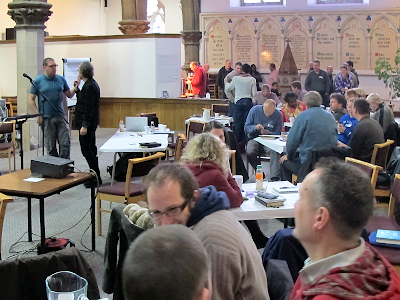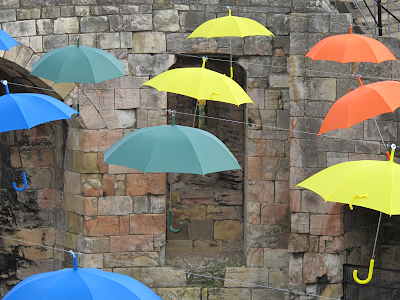< No earlier items | Series index | Meet in houses >
In his first step for transforming church life, Victor Choudhrie suggests that we rewrite the job description of the professional clergy. Instead of employing professional clergy we should expect leaders to encourage the sheep to serve one another.
 Here's the first of Victor Choudhrie's steps for transforming the life of the church, in his own words.
Here's the first of Victor Choudhrie's steps for transforming the life of the church, in his own words.Rewrite the job description of the professional clergy from that of a pulpit orator, sacrament dispenser and tithe gatherer, to that of a shepherd who feeds his flock to be healthy and reproducing, by encouraging them to practice the priesthood of all believers with authority to baptize, break bread and equip fishers of men. He must model a flat church structure wherein brothers and sisters submit to one another, pray one for another, serve one another, exhort, forgive and love each other. John 13:34-35; Matthew18:21-22; Ephesians 5:21
There's a lot to digest, right here in step one. It is written on the assumption that the reader is currently involved in a typical western denominational church of a particularly traditional kind.
There are professional clergy, people who are paid to work as pastors or vicars or whatever they may choose to call themselves. These people have three major roles - speaking from the front, presiding over the sharing of bread and wine, and fund raising.
A change of role - Choudhrie is clear that there must be a change of role. Shepherding involves feeding, promoting health and ensuring there is active reproduction. This would be a farmer's desire for any flock of sheep and it should equally be the shepherd's desire for church sheep. So far so good, at this point those in the newer streams of church may be feeling they are doing a reasonable job of meeting that first step. Catholics and Anglicans, however, may already be having a hard time accepting some of the changes being proposed.
But there's more! Choudhrie insists that the sheep themselves must be encouraged to act as priests and to take responsibility for baptising, breaking bread, and equipping others for capturing new followers. And the members are to learn to submit to one another and themselves do the work of church leaders. This may give pause for thought to many more of us.
Probable responses - How will traditional churches receive the suggestions in step one? There are three possibilities.
- Some may reject the step out of hand because it goes against church tradition and denominational rules.
- Others may try to make adjustments to bring their current model of church more in line with the requirements of step one. They might, for example, encourage selected and trusted members of the congregation to speak from the front from time to time, or take charge of communion, or manage a home group.
- And some might accept step one as it stands and make fundamental changes to the way church operates.
Questions:
- What problems do you see with each of the three responses?
- If the sheep are to do the work themselves, is a shepherd still necessary?
- What do you suppose Choudhrie means by a 'flat church structure'?
See also:
- Clergy and laity - Journeys of heart and mind
- David Black's convictions - Journeys of heart and mind
- Follow my leader - Journeys of heart and mind
- Foreword to 'The paster has no clothes' - Cole-Slaw
- Mega church to meta (beyond) church - Paul-Timothy
- New wave of the Spirit - Simply church
- Simple gathering of believers - Journeys of heart and mind
- Why Christ is silenced - Searching together
< No earlier items | Series index | Meet in houses >
















